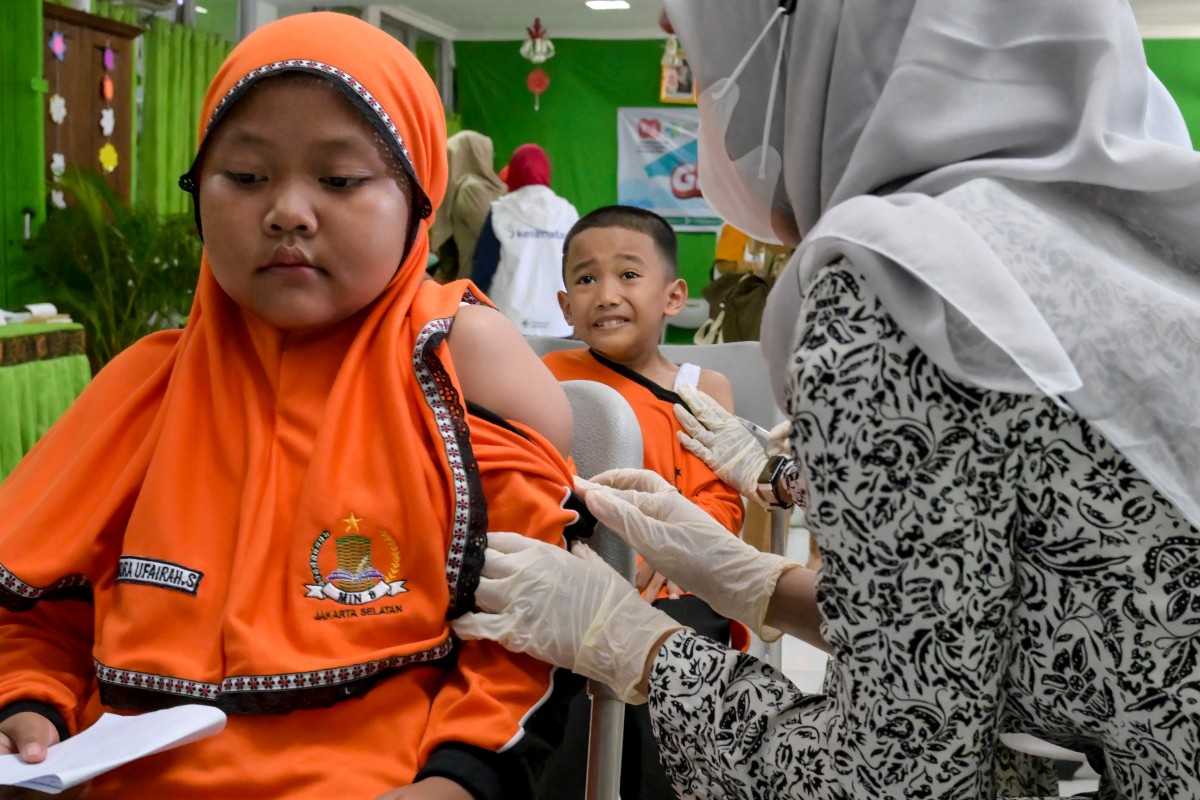September 2, 2025
JAKARTA – Health authorities in Jakarta accelerate childhood vaccination following a surge in measles cases in its poor, crowded neighborhoods.
As of Sunday, nearly 1,900 suspected measles cases have been recorded since January, primarily in western and northern parts of the capital, according to data from the Jakarta Health Agency. This month alone, the city reported 361 new suspected cases, a 400-percent spike from the same period last year.
Measles is a highly contagious vaccine-preventable disease caused by the rubeola virus that spreads through airborne respiratory droplets expelled during coughing and sneezing. It can affect anyone but is most common in children. It can lead to serious complications, such as blindness, pneumonia and brain inflammation, particularly in children under five years of age who are not vaccinated, according to the World Health Organization (WHO).
In its ministerial regulation issued in 2017, the Health Ministry mandated a compulsory measles-mumps-rubella (MMR) vaccine as part of national immunization programs for children.
Recently, the ministry declared an alert status of “extraordinary occurrence” (KLB) in 46 areas across the country, including West Jakarta and North Jakarta, due to the increase of cases in these areas, prompting the capital to scale up vaccination drive and surveillance program.
Cengkareng district in West Jakarta is among the areas reporting the highest number of infections with 25 suspected cases this month, where most of the cases occurred in the crowded subdistrict of Kapuk.
West Jakarta health authorities have now launched an outbreak response immunization (ORI) program in a bid to control the spread of measles.
“We [also] urge the public that if they notice any symptoms of measles in their family members, they should immediately take them to the nearest Puskesmas [community health center] for speedy treatment,” West Jakarta health agency head Erizon Safari said on Wednesday.
Read also: Measles outbreaks worsen amid backslide in childhood immunization
WHO estimated that at least 107,500 people died from measles globally in 2023.
According to epidemiologist Dicky Budiman from Griffith University in Australia, although the global fatality rate from measles was between only 1 and 3 percent, the death rate can be as high as 10 percent for those living in remote and isolated areas with poor access to healthcare facilities.
He also warned that since each infected individual could potentially spread the disease to 18 others and because the virus remains airborne for two hours, the disease becomes more contagious in densely populated settings, such as slums and schools.
“Immunization is the key and it is very essential to prevent the disease,” Dicky told The Jakarta Post on Sunday.
